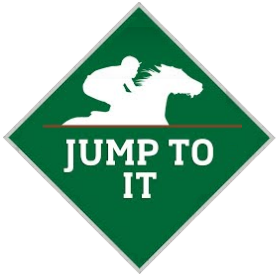
Vincent Finegan
Trainers vs Media
 TV interviews are an integral part of horse racing coverage
TV interviews are an integral part of horse racing coverage
© Photo Healy Racing
News from last week that a significant group of British trainers, represented by the Peter Savill founded Professional Racing Association, are threatening to boycott TV interviews unless they are paid is set to cause rifts within the sport.
This appears to be the latest skirmish in a wider feud about media rights money. Many within the industry, both here and in Britain, are not happy with how the millions that are brought in through these lucrative deals are divvied up.
The sport’s protagonists and the racing media have always had a symbiotic relationship. The sport benefits from the considerable promotion it receives from the media and the media benefits from the access it has to the sport’s trainers, jockeys, owners, racecourses and governing bodies.
Many media savvy trainers and jockeys use this relationship to get key messages into the public domain and/or promote themselves and they in turn reap the financial benefits of doing so.
Trainers often use their post race interviews to recognise the significant support they have received from loyal owners or highlight the improvements they have made to their facilities. Many also use the opportunity to focus attention on issues affecting their individual business, whether that be a lack of specific opportunities for a certain category of horse they train or a general moan about prize money levels or perceived failings in the sport’s administration and regulation.
Overall I think the trainers in particular do pretty well out of this relationship. While they are part of a large industry, each of them is ultimately a sole trader and the free publicity they get from these interview opportunities is significant.
Imagine how much a 30 second advert would cost on ITV during Cheltenham? The majority of trainers with runners during that week will get some air time, if they want it, and those that train winners will be lauded by the presenters.
On an annual basis the value of this type of publicity, directly to their customer base, far outweighs the £500,000 they want the Racecourse Media Group and Sky Racing to cough up.
Another side of the relationship between the racing media and those working within the sport is how easy a time everyone generally gets compared to other sports and industries. The vast majority of content is highlighting successes and achievements rather than failures or individual failings.
There are no racing paparazzi and the majority of the sport’s TV presenters are trainer-friendly former jockeys or in some cases even relatives of the trainers they are interviewing.
If the Professional Racing Association does instruct its circa 170 members not to do TV interviews it will be interesting to see how the TV stations react to fill the void. The action on the track is only a small percentage of the overall coverage so it will take some very creative planning to produce entertaining and engaging content for hour after hour without trainer input.
Endless re-runs of races coupled with waffling presenters won’t do much for viewing figures. Though this shouldn’t be too much of an issue during the Cheltenham Festival when there will at least be plenty of Irish trainers present and eager to talk.
Looking ahead to this weekend’s Dublin Racing Festival it appears that it will once again end up being a Willie Mullins benefit. The Champion Trainer swept the boards over the two days last year by winning all eight Grade One contests and a quick look at the latest ante post markets on the same races this time sees a Mullins horse favourite for each of them again.
It would be an incredible personal achievement if he can repeat last season’s dominance of the Leopardstown Grade One races, but even the great man must acknowledge that this can’t be good for the sport.
Aside from the Grade One contests there are strong entries for all five handicap hurdles and chases and also the two bumpers, but overall the British trainers are conspicuous by their absence.
Just three British entries for those seven high value races, all with minimum prize money levels of €100,000 or more, is surprising. Perhaps they were expecting to be offered some appearance money?

 Watch
Watch
 7/2 - 10.51 Oaklawn Park
7/2 - 10.51 Oaklawn Park 13/2
13/2 11/4 - 10.51 Oaklawn Park
11/4 - 10.51 Oaklawn Park







